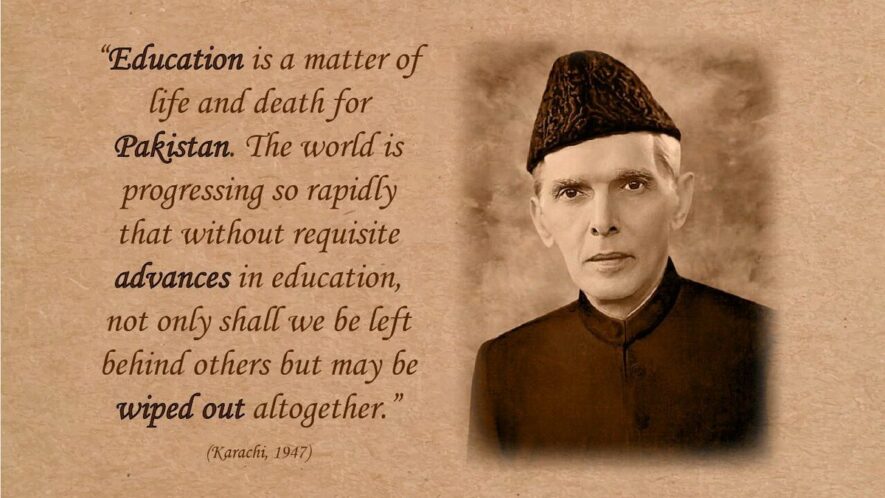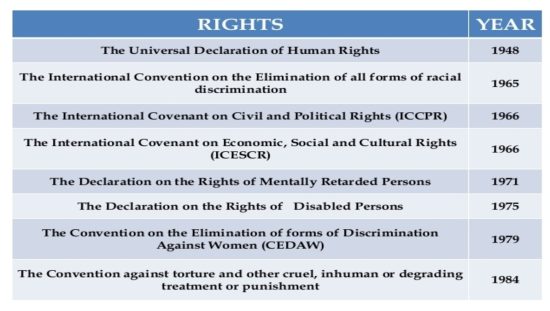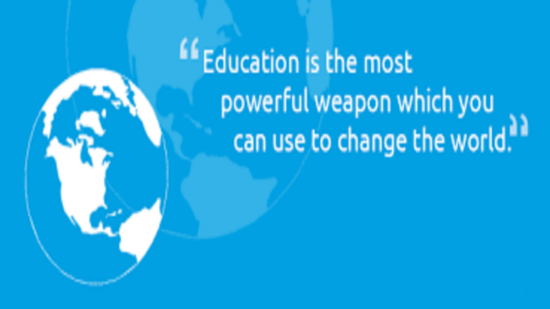The Right to Education Pakistan campaign, commonly known as RTE Pakistan, advocates for equitable educational opportunities for all Pakistani children. This campaign calls on the government to carry out the constitution’s mandate of providing free and compulsory education to ALL children aged 5 to 16. Because education has been devolved to provinces, the obligation must be claimed not only by the federal government, but also by provincial legislative bodies. RTE also strives to engage parents, teachers, students/youth, and civil society in the fight for free and obligatory quality education for ALL children.
Constitutional Provisions regarding RTE
The Constitution of the Islamic Republic of Pakistan approved in 1973 guarantees provision of education to it citizens through following articles;
1. Article 37(B) – Promotion of Social Justice and Eradication of Social Evils
Article 37-B of the Pakistani Constitution was enacted in 1973, and it states that
“The State shall remove illiteracy and provide free and compulsory secondary education within minimum possible period.”
Article 37B – Constitution of Islamic Republic of Pakistan
2. Article 38(D) – Promotion of Social and Economic Well-being of the People
Another Article 37-D of the Pakistani Constitution was also enacted in 1973, and it states that
“The State shall provide basic necessities of life, such as food, clothing, housing, education and medical relief, for all citizens, irrespective of sex, caste, creed or race, as are permanently or temporarily unable to earn their livelihood on account of infirmity, sickness or unemployment.”
Article 37D – Constitution of Islamic Republic of Pakistan
3. Article 25A – Right to Education (RTE)
In 2010, Article 25-A of the Pakistani Constitution was added, and it states that
“The state shall provide free and compulsory education to ALL children of the age of five to sixteen years in such manner as may be determined by law.”
Article 25A – Constitution of Islamic Republic of Pakistan
4. 18th Constitutional Amendment
Under the 18th Constitutional Amendment, Education has been devolved to the provinces which are responsible for the award of education up to intermediate level. The Academy of Educational Planning and Management (AEPAM), after the devolution of the Ministry of Education under 18thConstitutional Amendment, is being administratively controlled by Ministry of Federal Education and Professional Training and performing the functions of collation of education data collected through Provincial/Regional EMISs (Education Management Information System) and maintains linkages with Provincial and District Organization and Education Institutions.
Pakistan’s International Commitments
Pakistan is a signatory of important international initiatives regarding education as basic human right (RTE). Some of them are as under;
1. The Universal Declaration of Human Rights (UDHR)
The Universal Declaration of Human Rights (UDHR) is a historic document that was adopted by the United Nations General Assembly at its third session on 10 December 1948 as the “common standard of achievement for all peoples and nations”. The Declaration for the first time in human history spelled out basic civil, political, economic, social and cultural rights that all human beings should enjoy. The Article 26 of UDHR provides as under;
“Everyone has the right to education. Education shall be free, at least in the elementary and fundamental stages. Elementary education shall be compulsory. Technical and professional education shall be made generally available and higher education shall be equally accessible to all on the basis of merit.”
Article 26 – UDHR
2. Education for All (EFA)
At the World Conference on Education for All (Jomtien, Thailand 1990) delegates from 155 governments including Pakistan, met to discuss major aspects of Education for All (EFA). Ten years after Jomtien, the World Education Forum was again convened where 182 countries including Pakistan participated. It concluded with the adoption of the Dakar Framework for Action (April 2000) which outlined the following goals;
- Expanding and improving comprehensive early childhood care and education (ECCE), especially for the most vulnerable disadvantaged children;
- Ensuring that by 2015 all children, with special emphasis on girls and children in difficult circumstances have access to complete, free and compulsory primary education of good quality;
- Ensuring that the learning needs of all young people and adults are met through equitable access to appropriate learning, life skills and citizenship programs;
- Achieve a 50% improvement in levels of adult literacy by 2015, especially for women and equitable access to basic and continuing education for all adults;
- Eliminating gender disparities in primary and secondary education by 2005, and achieving gender equality in education by 2015, with a focus on ensuring girls’ full and equal access to and achievement in basic education of good quality; and
- Improving all aspects of the quality of education and ensuring excellence of all so that recognized and measurable learning outcomes are achieved by all, especially in literacy, numeracy and essential life skills.
3. Millennium Development Goals (MDGs) 2000
The Millennium Development Goals (MDGs) were the eight international development goals for the year 2015 that were established in the Millennium Summit of the United Nations in 2000, following the adoption of the United Nations Millennium Declaration. Goals 2 & 3 specifically address education:
Goal 2: Achieve Universal Primary Education
Target 3: Ensure that by 2015, children everywhere, boys and girls alike, will be able to complete a full course of primary schooling.
Goal 3: Promote Gender equality and Empower Women
Target 4: Eliminate gender disparity in primary and secondary education by 2005 and at all levels of education, no later than 2015.
4. Sustainable Development Goals (SDGs) 2015
The Sustainable Development Goals (SDGs) are a collection of 17 global goals set by the United Nations. The broad goals are interrelated though each has its own targets to achieve. The SDGs are also known as “Transforming our World: the 2030 Agenda for Sustainable Development”. SDGs were developed to replace the Millennium Development Goals (MDGs) which ended in 2015. Unlike the MDGs, the SDG framework does not distinguish between “developed” and “developing” nations. Instead, the goals apply to all countries.
Goal-4 relates to Quality Education and to ensure inclusive and equitable quality education and promote lifelong learning opportunities for all.
Frame work of SDGs encourages the signatory countries to develop local framework to achieve international commitment according to the requirements and resources. Pakistan as a signatory of SDGs has developed a National Framework for localization of SDGs at district level to improve public social service delivery for implementation of the global agenda. To accomplish SDGs, the federal government has decided to enhance working relationship with the provinces by providing all possible support to ensure successful implementation of all SDGs including those related to right to education (RTE).
References
Shahbaz, S. T. (2018). Report of the Committee on Education Sector Reforms in Pakistan. Islamabad: Federal Ombudsman Pakistan.
OTHER RELATED POSTS
25 Goals of Pakistan Vision 2025
UN Declaration on the Rights of Disabled Persons, 1975
UN Declaration on the Rights of Mentally Retarded Persons, 1971



